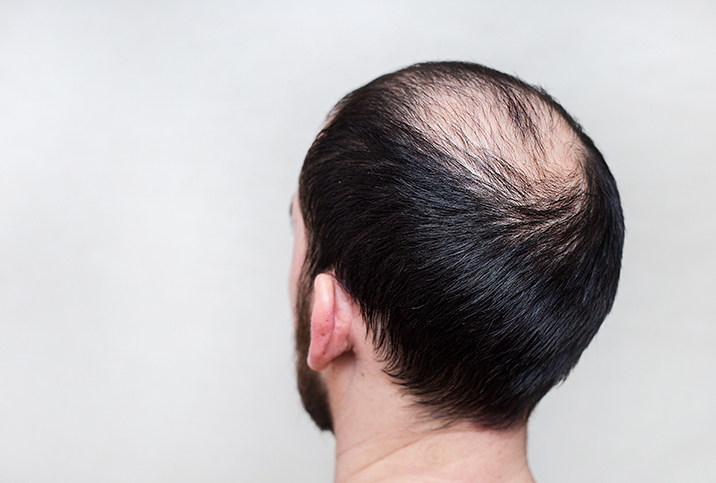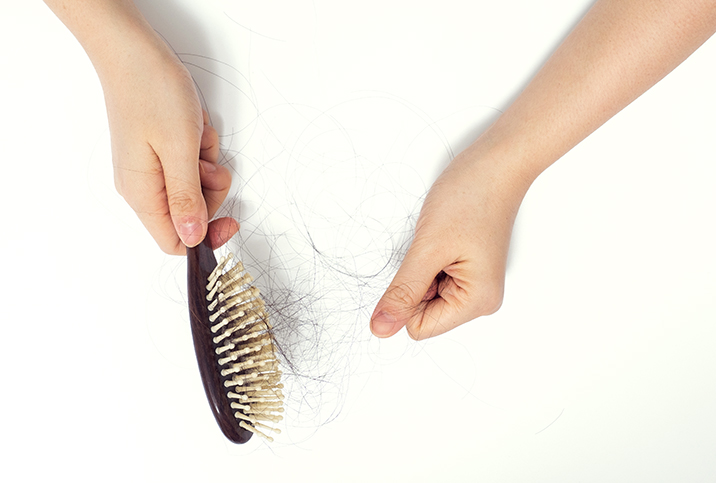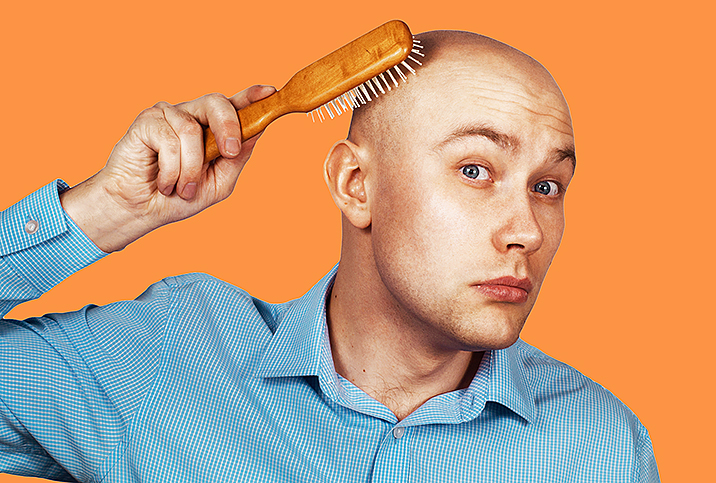The Bald Truth: Are Your Hair-Loss Meds Giving You ED?

Losing your hair can be a difficult change to accept. But losing your erection in an attempt to slow or reverse hair loss could make the situation even tougher.
Studies show a correlation between finasteride—a popular drug used to treat hair loss and benign prostatic hyperplasia (BPH)—and erectile dysfunction, with research by Northwestern University Medicine even stating that ED can continue well after you stop taking the drug. Hair-raising, to say the least.
Exploring the link
To better understand how finasteride may contribute to ED, we first need to break down why it's used as a hair-loss drug in the first place. Finasteride blocks the action of an enzyme that converts testosterone into 5-alpha-dihydrotestosterone, or DHT, a hormone that contributes to male pattern baldness. By blocking DHT, testosterone levels increase in the body and hair growth increases on the scalp. But this same process may also increase the risk of sexual side effects such as ED by inducing a deficiency of androgens, or male sex hormones. Similarly, finasteride treats BPH by blocking the body's production of a male hormone that causes the prostate to enlarge.
Northwestern Medicine researchers found that the longer men took finasteride, the more at risk they were of developing persistent ED when compared to men who had less exposure to the drug. The study also found that some men continued to experience persistent ED for months or years after they stopped taking finasteride. The Mayo Clinic reports that while finasteride may diminish sexual function in some men, it's believed to be a rare side effect.
Giddy urologist Dr. Edwin Morales explains in depth how certain medications can cause erectile dysfunction. Watch the video here.
Other options for hair loss
Whether you're looking to get treatment for male pattern baldness or any other health condition, the moral of the story is to do thorough research before settling on a treatment option. You should also get advice from experts and talk through all of the potential risks and benefits of each treatment with your doctor.
Over-the-counter topical and oral medications are among the other available treatments for male pattern baldness. If you want to avoid taking medication, other potential treatments include hair transplant surgery or laser therapy, though these options may take multiple sessions and can vary in their effectiveness—and are typically expensive.
During a hair transplant, a dermatologist or cosmetic surgeon takes hair from other parts of your head and transplants it to the bald or thinning areas of the head. This grafting process sometimes requires a larger strip of skin containing multiple hair groupings, according to the Mayo Clinic. Hair transplants don't typically require hospitalization but do involve sedation because the procedure can be painful or uncomfortable.
Laser therapy, on the other hand, works by using a low-level laser to promote improved hair density. While some studies have shown that laser therapy can be an effective treatment for hair loss, more studies are needed to fully understand the long-term effects, the Mayo Clinic reports.
While it's natural to want to delay hair loss or any other sign of aging, it's worth remembering that you can't outrun genetics. If your hair loss is the result of your genes, it will happen eventually. For some people, though, sudden hair loss may be a sign of underlying health problems, so it's important to talk to your doctor to ensure that there aren't any other concerns.


















